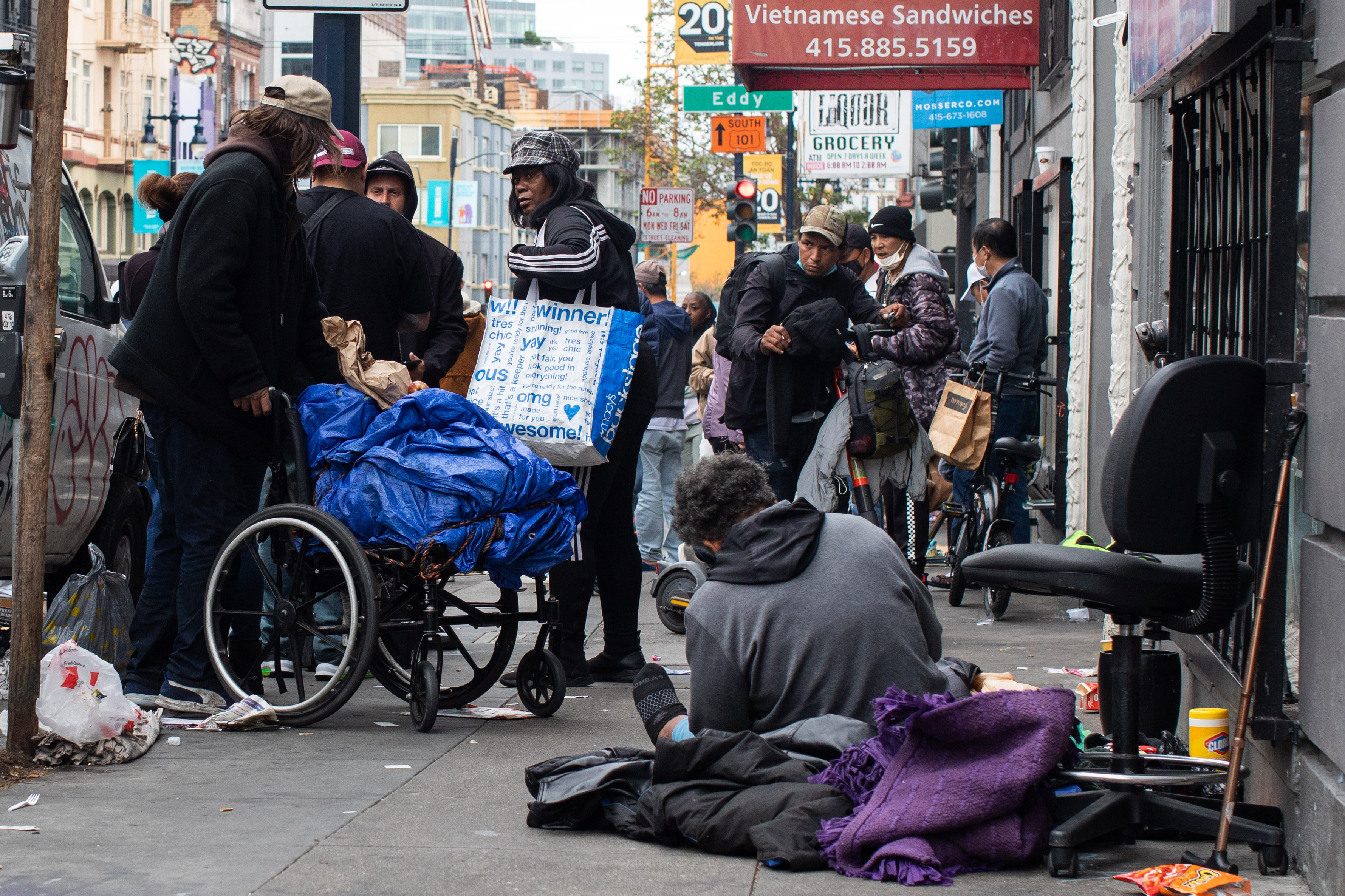Tenderloin residents and businesses will file lawsuits Thursday, alleging San Francisco has treated the destitute neighborhood as a “containment zone” for illegal drug dealing and use.
A federal lawsuit asserts that the city has failed to address long-standing issues with street safety and crime.
The plaintiffs include four unnamed residents who are described as families with young children, seniors, disabled residents and two businesses, including the Phoenix Hotel and Best Western. The suit further accuses the city of violating constitutional rights, disability access laws, public nuisance laws and other statutes.
“For years, the de facto policy of the city has been to corral and confine illegal drug dealing and usage, and the associated injurious behaviors, to the Tenderloin,” the complaint states. “The city tries to keep such crimes and nuisances out of other San Francisco neighborhoods by ‘containing’ them in the Tenderloin.”
The lawsuit includes photos depicting sidewalks blocked by tents, crowds of people appearing to buy and use drugs, discarded needles, human waste and other hazards. It also cites online reviews from hotel guests disturbed by the neighborhood conditions surrounding the lodging properties.
In a statement Thursday, spokesperson Jen Kwart said the City Attorney’s Office would review the complaint and respond in court.
“While we understand and share the frustration of Tenderloin businesses and residents, the city is making progress in reducing crime, disrupting open-air drug markets, and addressing homelessness, all while complying with the preliminary injunction issued in the Coalition on Homelessness case,” Kwart said.
Kwart also called the latest lawsuit’s timing “odd,” given the U.S. Supreme Court’s impending decision in the Grants Pass case “potentially altering the legal landscape in homelessness cases.”
“It is clear that increased litigation over homelessness is not improving conditions on our streets,” Kwart said. “The courts are not equipped to police every interaction between outreach workers and unhoused individuals. The courts are similarly not equipped to step into the shoes of elected policymakers and voters in order to craft broad strategies to address homelessness.”
UC Law SF will also file a court motion Thursday in an ongoing U.S. District Court lawsuit seeking compliance with a 2020 court order requiring the city to remove all Tenderloin homeless encampments and tents.
The city has claimed it is prevented from enforcing that order by a separate 2022 injunction from Judge Donna Ryu, barring enforcement of certain anti-camping laws when there are more homeless people than available shelter beds.
However, the plaintiffs argue that the injunction only applies to those who are involuntarily homeless, not those who have refused offers of the city’s approximately 300 open shelter spaces. They also note an appeals court has since limited the 2022 injunction’s scope.
The enforcement order asks the court to require the city to resume full compliance with the 2020 injunction by discouraging tents, preventing re-encampment and “employing enforcement measures” against those who refuse shelter.
UC Law SF’s attorney, Matthew Davis, said his clients were not seeking monetary damages.
“Rather, they demand equitable treatment and relief from open-air drug markets, violence, and impassable and unsanitary streets,” Davis said. “They demand an end to the rampant illegal street vending, and from the squalor and misery that exists throughout their neighborhood because the city has decided that people in the throes of addiction can live and die on the Tenderloin’s streets.”
Dean David Faigman said the school was committed to helping make neighborhood streets safer by enforcing the stipulated injunction.
“The Tenderloin deserves to be treated just like any other neighborhood in the city. As an institutional anchor in the Tenderloin, we have the responsibility to speak for and protect our campus and our neighbors whose voices are often diminished,” Faigman said.
Correction: This story was updated with the proper spelling of UC Law SF Dean David Faigman’s name.
